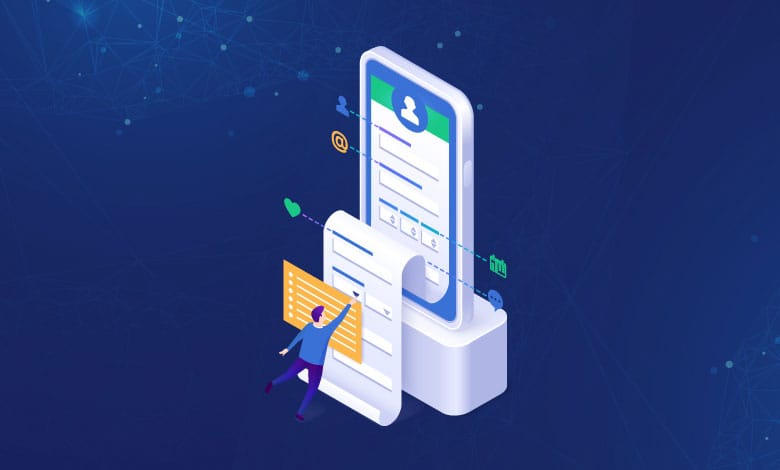Healthcare workflows can automate in many ways. This article will discuss a few healthcare workflows you can automate to increase efficiency and reduce your organization’s workload with intelyConnect.
However, such a workflow’s smooth functioning depends upon the software development techniques, data quality, and the training of professionals to use the system.
What is healthcare workflow?
Healthcare workflow is the process by which health care services are delivered. It is the organization, coordination, and management of these services to meet the healthcare needs of communities.
For example, a brand-new hospital building will have its staff, including doctors and nurses; when a person enters a hospital, they are treated by everyone, not just the people within their building.
Nowadays, you will find that most healthcare organizations must work collaboratively to provide seamless and high-quality patient care successfully.
Why is healthcare workflow automation important?
Modern businesses have a digital transformation challenge: how to unite internal and external business communications in a world where email, phone calls, spreadsheets, whiteboards, and post-it notes are the norm.

These task management solutions rely heavily on human memory and are ineffective at facilitating cooperation and providing visibility when a worker or decision-maker is in need.
Instead of ensuring that all work task information and communications are conducted within the platform or that a record of communications is maintained within the relevant work tasks.
A workflow automation platform allows organizations to reduce their reliance on these communications and tracking tools drastically.
How can you automate healthcare workflows?
As healthcare organizations move the burden of administrative tasks to third-party providers and employees, in that case, automation is quickly becoming a top priority for healthcare IT staff.
With healthcare automation, you can get things done efficiently. You don’t have to ask people to do the task repeatedly. When you automate a workflow, it can save you time and money.
Here we discussed five healthcare workflows that can automate:
System maintenance:
One of the most significant hazards that healthcare companies face is the vulnerability of their patient health records. Unfortunately, most data breaches and leaks are caused by human error.
To make matters worse, unintentionally adding incorrect information into a system might misdiagnose patients. Managing such issues at scale becomes nearly impossible if you still use manual methods.
When operations like updating electronic health records are automated, there’s no opportunity for human error, which might result in inaccurate data.
For example, all employees will have real-time access to the same data with a centralized and secure storage repository.
Onboarding new employees:
Finding the most outstanding people is one thing, but keeping them is another. In addition, complicated Onboarding processes make it difficult for new employees to get started with their tasks.
When newly hired doctors, for example, are continually overwhelmed with Onboarding paperwork, they may find it challenging to care for patients on their first day. Another time-consuming task is familiarising new staff with your compliance requirements.
Onboarding in the healthcare industry requires more than just hiring new employees. It’s also about having a well-defined and automated procedure for quickly bringing them up to speed.
Instead of manually filling out and filing stacks of paper forms, automated solutions will provide staff with all the documents and information they need to get up to speed quickly.
Information security:
Healthcare practitioners are a popular target for hackers, especially ransomware producers, who regard them as easy targets. When access to patient data might mean the difference between life and death, it’s critical to have numerous levels of security in place.
In a time when attackers are utilizing increasingly complex tactics to exploit a wide range of vulnerabilities, antivirus software and firewalls aren’t enough.
Innovative healthcare organizations are automating their information security procedures to decrease the risk of human error and detect unexpected threats with predictive analytics.
Artificial intelligence is a game-changer in the healthcare industry, and every institution should use it.
Management of documents:
HIPAA and HITECH regulations place tight restrictions on how healthcare institutions retain, exchange, and manage patient health information (PHI).
As your repository of information expands, ensuring PHI is maintained in line with the rules becomes increasingly complex for companies that depend mainly on manual processes. Intely provides workflow automation for healthcare industry.
On the other hand, employees require rapid and simple access to vital information to serve their patients better. Therefore, document management systems for healthcare providers are secure and compliant by design.
They make it easier to handle electronic health records, but they also make it easier to manage other vital data like invoicing supplier contracts and communication.
Document management systems track when and by whom documents are updated to keep workers responsible and ease the auditing process.
Patient admission and discharge:
Patient admission and discharge are critical components of any hospital process, and doctors frequently spend a significant amount of time signing off clearances and organizing patient appointments.
While necessary, such administrative chores can absorb so much time that they become a bureaucratic nightmare. In addition, when you use a paper-based process, approvals take longer and are more difficult to get, leading to poor patient care.
With an automatic admission and discharge system, all permissions may issue in real-time.
For example, mobile apps may assess requests and arrange appointments. These are also more difficult to fake, yet time-stamped paperwork provides complete visibility into workflows to hospital administration.
Benefits of it:
- ● Improve efficiency:
Simplifying task processes is made easier by automating internal procedures. In addition, the number of human contact points is minimized, enhancing efficiency by completing functions quickly utilizing human intelligence.
- Increased productivity:
Once company procedures are automated, teams no longer waste time executing repeated tasks or waiting for clearance from senior management. In addition, it can monitor the processes and their progress in real-time, which aids in better time management and increased productivity.
- Audibility:
Workflow automation automates answers, reducing response time during follow-ups or status updates. In addition, it enhances communication and collaboration across various teams in various areas inside the company.
- Improved accountability:
Workflow automation improves responsibility by defining distinct duties and assigning each team member steps to follow. As a result, employees are more accountable for their involvement in a certain process.
Conclusion:
Creating streamlined and efficient workflows is challenging in any industry, but even more so within the healthcare field. However, plenty of technological solutions can help make your workflow more effective and productive. intelyConnect offers a no-code and low-code approach to healthcare data integration and interoperability.
Multipurpose workflow software providers like intelyConnect may help you accomplish your company objectives by enhancing efficiency, productivity, and automation solutions. Consider automated solutions for your hospital or health facility today with us.

